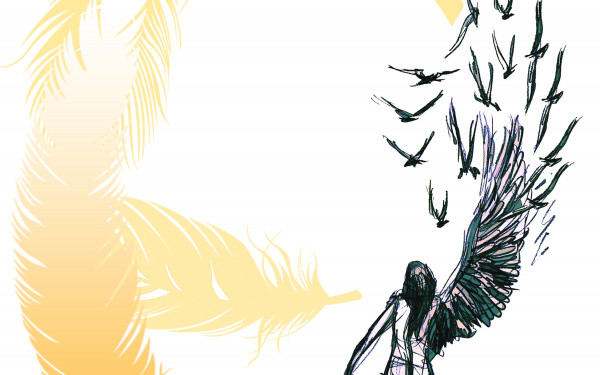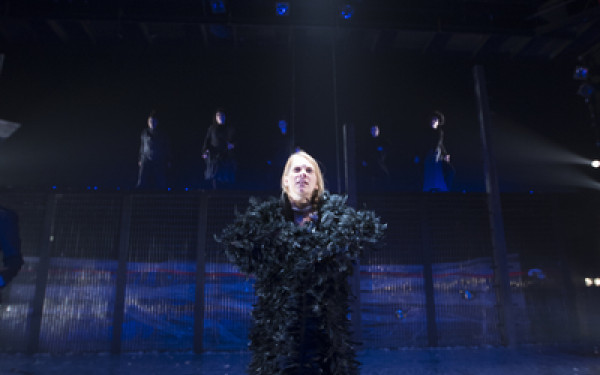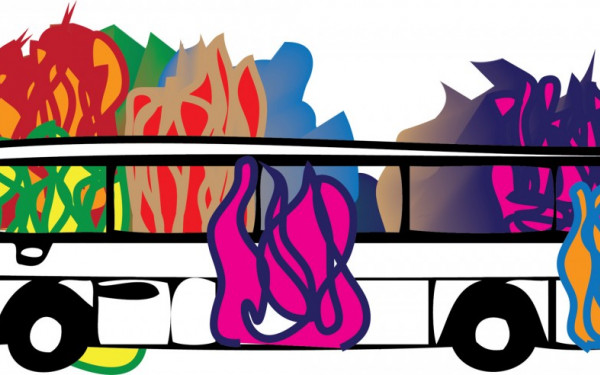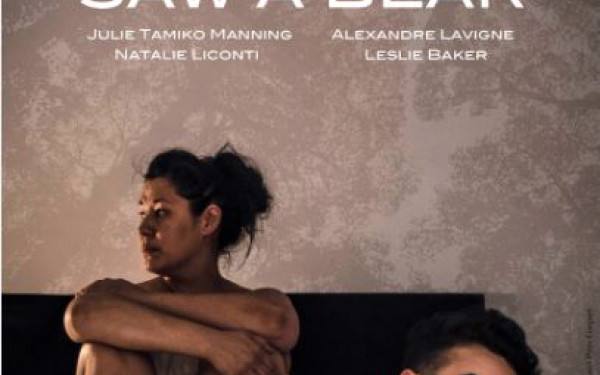Acts to Grind Theatre Examines Hatred and Antisemitism in Adaptation of Cherry Docs
Davyn Ryall updates critically-acclaimed play for contemporary Montreal
A couple of chairs and a table made of reflective material hold up a mirror to the audience. A pair of cherry red Dr. Martens boots are lit up as the first scene starts. This is how director Davyn Ryall from Acts to Grind opened his interpretation of Cherry Docs.
The play by Canadian writer David Gow focuses on the relationship between Mike Downey, a neo-nazi skinhead, and his Jewish lawyer Danny Dunkleman. Downey is arrested for accidentally killing a South Asian man and is accused of first-degree murder. A confrontational relationship between Downey and Dunkleman begins and eventually leads to the two men working together despite their initial hatred for one another.
Ryall’s minimalist staging is not only fit for the atmosphere of the prison where the story unfolds but also enables the audience to focus on the characters’ relationship. A simple table and two chairs allow the two men to face each other and to get closer as they try to come up with a defense. Throughout this work, Dunkleman learns about Downey as well as about his past and the rough circumstances of his upbringing. The lawyer eventually comes to believe that his client deserves a second chance. With Dunkleman’s help, Downey unlearns what he was taught by his skinhead counterparts and learns to view the people he previously hated with love.
Ryall explained that this is the first representation where Dr. Martens boots are shown on stage. A staple of the skinhead movement, these combat boots were originally worn by members to demonstrate pride in their working-class upbringing, as well as for their use in street fights. In the context of the play, Docs are the weapon used in the crime that Downey is charged with.
The biggest artistic choice made by Ryall was to adapt Gow’s work to contemporary Montreal. By changing the location from Toronto to iconic Montreal neighbourhoods like the Mile End and the Plateau, Ryall strived to make this play even more relevant to his audience.
“We’re putting on the news everyday and there is some kind of story about a hate crime—whether it is to the South Asian community or to the Hasidic community,” explained Ryall. “And it’s local, it’s very close [to us].”
Ryall acquired special permission from Gow to change the play’s setting for the first time in its history of being performed. He explained that he wanted Cherry Docs to be current to make the audience realize that these hate crimes were not something foreign but were happening today in their own city.
“A big part of it is putting a mirror in front of the audience,” said Ryall, pointing at the stage and its reflective furniture. “To evaluate your own potential prejudices and fear. God knows everyone has some measure of it in us and that is the theme of the play.”
Michael Aronovitch, who plays Danny Dunkleman, is Jewish himself. He said he wanted to put the audience face to face with hate to question how people like Downey come to be violent, bringing forth the idea of restorative justice in the process.
Bryan Libero, who plays Downey, said this was the most challenging role of his career. He explained that he had to get to know Downey to be able to empathize with him and that he wanted to transmit this empathy to the audience.
“Throughout the play, you realize he’s actually an intelligent person who’s unfortunately fallen down the wrong path,” said Libero. “If I could make someone in the audience after every show empathize with him, even a little bit, I’d have done my job properly.”
Libero explained he wanted audiences to question why violent people who commit hate crimes go to such extremes and how society can prevent them.
In a speech where he turns to the audience, who becomes the jury of the play, Dunkleman explains that locking Downey up won't do him any good—he needs to be given the tools to integrate into society.
Ryall and the actors explained that they found this idea particularl important since hate crimes on racial and religious grounds are on the rise.
“I have first-hand knowledge of seeing the statistics of how antisemitism in general is increasing every year,” said Aronovitch. “In subtle ways, whether it be through jobs or services or destruction of property.”
For the cast, even though the play talks about antisemitism, it can very well stand for racism and other prejudices in general.
Cherry Docs runs until Oct. 9 at the MainLine Theatre on Saint Laurent Blvd. Tickets are $20 for students while the regular price is $28.

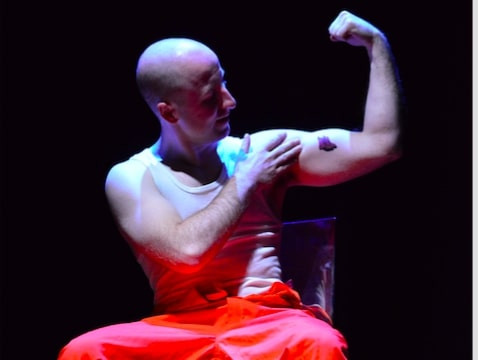
_600_832_s.png)

